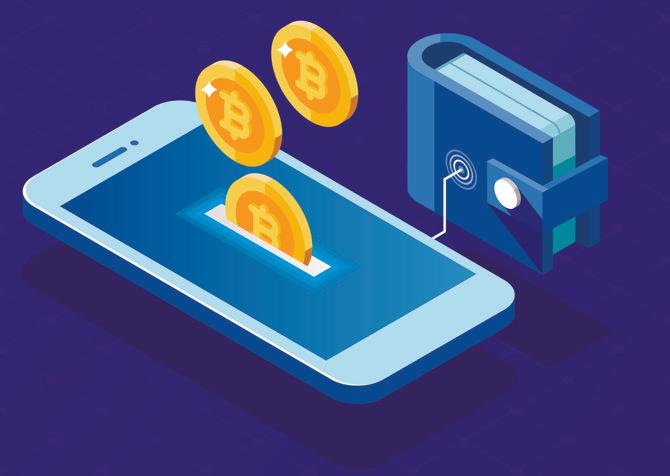
If authorities suspect your crypto wallet has connections to criminal activity, they can obtain a property freezing order and freeze it through either cooperation with exchanges or accessing its private keys through court order.
An experienced civil forfeiture attorney can help you challenge the seizure. They will challenge probable cause and assert that procedures weren’t adhered to properly.
Seizure by Law Enforcement
Seizing cryptocurrency presents authorities with more challenges than confiscating tangible assets such as apartments or cars. One such difficulty lies in taking possession of a crypto wallet without its private key – necessary for accessing funds and moving them – so law enforcement typically collaborate with cryptocurrency exchanges when seizing assets, while blockchain analysis tools like Chainalysis Reactor may be employed to trace illicit flows of cryptocurrency.
Once in possession of private keys, law enforcement can seize wallets by seeking court orders compelling their original owners to reveal passkeys. They then can transfer assets seized to government-controlled wallets or freeze them until legal proceedings conclude; the process can take weeks, months or years depending on claim strength, court schedules and other considerations.
When it comes to civil asset forfeiture claims, you’ll need to demonstrate that any seized assets do not relate to any illegal activity. This can be accomplished by filing a verified judicial claim with evidence such as transaction details and wallet keys suspected of criminal activities; you should also show that any suspected illegality wasn’t your fault (e.g. if it involved fraud or pump-and-dump schemes).
Seizure by Binance
Binance, the world’s leading cryptocurrency exchange, has been accused of encouraging criminal activities by providing access to criminal actors who use its platform. Authorities recently seized millions of dollars’ worth of cryptocurrency associated with an international fraud ring operating across multiple countries using VPNs to avoid detection; additionally they utilized various exchanges and wallets to transfer their money between accounts.
Law enforcement officials have successfully utilized advanced technologies to track down cryptocurrency criminals. This includes transaction patterns and mapping networks of wallets. Such tools have helped law enforcement identify real identities associated with specific wallets, and may reveal vulnerabilities within them – a growing concern among cryptocurrency users who prioritize privacy.
Although its exact workings remain unclear, one report claims that British police can use a recently introduced legal provision to seize cryptocurrency from suspected fraudsters. Under this new law, authorities can obtain a “Crypto Wallet Freezing Order” (CWFO), which blocks access to an individual wallet and prevents its owner from withdrawing or transferring any funds out of it.
Binance CEO Richard Teng quickly disproved this report by asserting that his company complies with anti-money laundering legislation just like all financial institutions, and noted their work with federal agencies in the US to curb digital asset crimes. Unfortunately, however, Teng refused to elaborate further on any specific details surrounding this case such as whether users who had their accounts frozen were given advance notification from Binance.
Seizure by Exchanges
The government can utilize blockchain analysis tools to quickly identify wallets, exchanges, and centralized databases containing illicit funds. They then obtain a warrant to seize these assets. Once sequestered, these assets are typically transferred into government-controlled wallets until their legal process has concluded – after which time they may be sold or auctioned off for public benefit or in some instances returned directly back to victims of fraud or money laundering.
Cryptocurrency is an online-only form of digital money that uses encryption to keep transactions private and keep criminal activity hidden from view. Common uses include drug trafficking, money laundering and financing terrorist activity – making it attractive among criminals because its transactions are difficult to track down or trace, making criminal use anonymous. As law enforcement agencies recognize its risks associated with cryptocurrency assets they have increased efforts to seize cryptocurrency assets.
Know how cryptocurrency seizures work is crucial if you are facing criminal allegations in Nevada. An experienced defense attorney can help challenge the seizure of your assets by looking at whether funds were properly obtained and linked with criminal activity. They can also examine if there were any procedural errors that rendered the seizure invalid and reference case history and rulings specific to Nevada to fight on your behalf for their return.
Seizure by Banks
Law enforcement authorities are employing advanced tools to track down cryptocurrency wallets associated with real-world identities. This includes blockchain analysis software which tracks transactions as well as subpoenas to exchanges. While these tools allow law enforcement to track criminal activity more effectively, they also pose potential threats to users’ privacy and security. As technology evolves rapidly, individuals should become informed on Nevada laws regarding crypto asset seizure.
Government agencies typically seize cryptocurrency when there is evidence of illegal activities like tax evasion, money laundering or fraud. Sometimes a criminal conviction may be necessary before the assets can be permanently forfeited; alternatively a non-conviction civil forfeiture process may be employed in order to freeze assets while criminal investigations continue – with civil cases typically covering crimes that occurred within one state and criminal cases potentially spanning multiple states or even internationally.
Cryptocurrency can be easily confiscated by authorities if they can gain access to its private keys. Police can order people under threat of perjury to reveal them; search computers and phones for passwords, safe deposit boxes or home storage devices and issue search warrants against cold wallets that contain encrypted backup keys for retrieval – though this won’t stop criminals using cryptocurrency as cover for their crimes.



